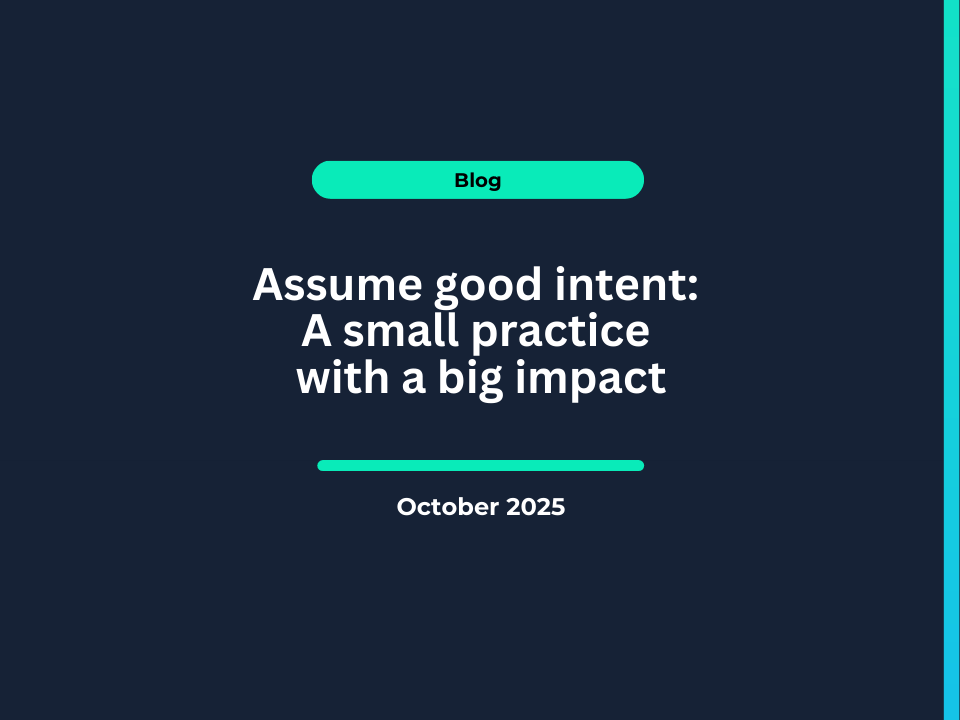Written by Anand Chakravarty, Director of Engineering, Kinetik
At Kinetik, we often talk about the importance of culture. It’s what holds a team together through challenges, growth, and change. It shows up in how we collaborate, how we communicate, and how we interpret each other’s actions.
Among our three core values — Be Just, Be Curious, Be Collaborative — one principle that brings them all to life is simple but powerful: Assume Good Intent.
Why “Assume Good Intent” matters
In any workplace, miscommunication is inevitable. A quick Slack message that reads “When will item X be ready?” or “Do you know why feature Y stopped working?” might feel abrupt. It’s easy to assume frustration or blame behind those words. But more often than not, it’s just someone trying to move work forward — quickly, perhaps without the niceties that face-to-face conversation allows.
When we choose to assume good intent, we shift our energy from reacting emotionally to collaborating productively. We stop second-guessing motives and start solving problems together.
This mindset is a quiet but powerful force for team harmony. It helps us build trust faster, resolve issues more efficiently, and ultimately, enjoy the work more.
Practicing it every day
Assuming good intent doesn’t mean ignoring poor behavior or pretending conflict doesn’t exist. It means giving people the benefit of the doubt first and interpreting their actions as constructive until proven otherwise.
If someone asks a pointed question during a sprint demo, for example, they might simply be offering a new idea or clarifying how a feature works. When we listen with generosity, we create space for creativity and mutual respect to thrive.
And it’s not just good for relationships, it’s good for our own wellbeing. By choosing not to dwell on imagined negativity, we free ourselves from unnecessary stress and make more room for focus, curiosity, and better communication.
When intent isn’t good
Of course, there will be rare times when intent truly isn’t positive. In those cases, it’s important to recognize patterns, gather context, and use the systems and processes in place to address it thoughtfully. But those exceptions shouldn’t define our default approach.
As the saying goes, “Hard cases make bad law.” One negative experience shouldn’t cause us to assume the worst of everyone. The vast majority of interactions at work, especially in a collaborative and mission-driven team, come from a good place.
A culture that lives its values
At Kinetik, we strive to live our values every day. Be Just reminds us to treat others fairly, without assumptions or bias. Be Collaborative challenges us to create the conditions for open, respectful teamwork. Assuming good intent connects both — it’s how we honor each other’s efforts and keep building an environment where ideas and people can thrive.
When we start from trust, everything else becomes easier. And that’s the kind of culture worth protecting as we grow.






.png)


